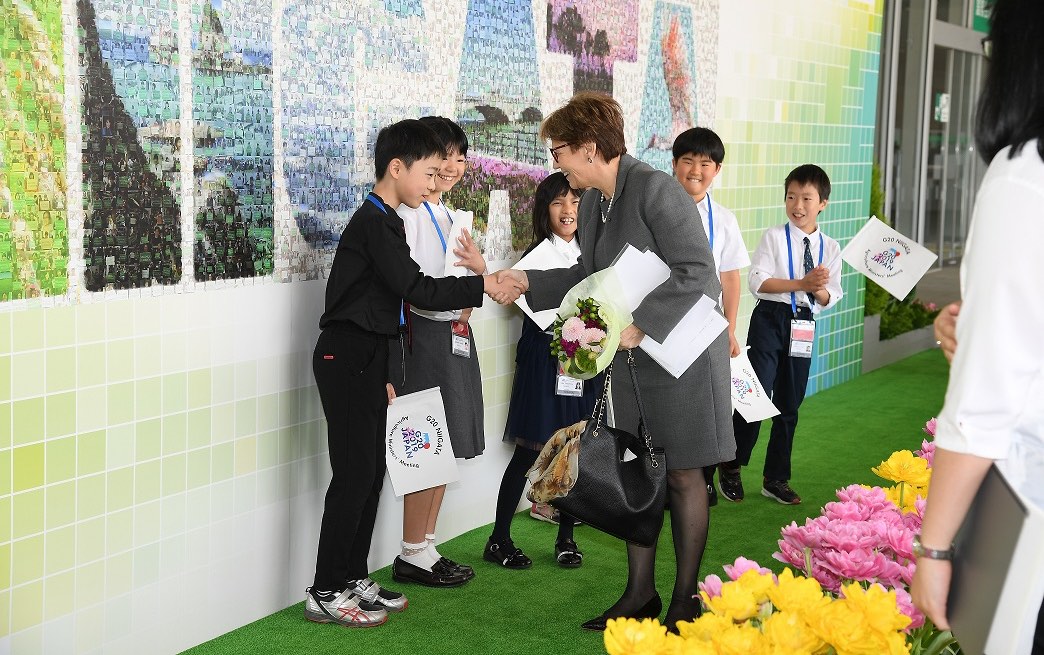At their May 11-12 meeting in Niigata, Japan, G20 agriculture ministers agreed to cooperate in promoting new digital technologies (including robotics, remote sensing, artificial intelligence, and blockchain), tapping the potential of food value chain (FVC) development, and reducing food loss and waste. These efforts are essential to raise productivity and efficiency in food systems, the ministers said in their joint declaration.
The ministers addressed one of agriculture’s most serious long-term global challenges: Aging farm populations and the exodus of rural youth to urban areas. In Japan, for example, this trend is a factor underlying lower agricultural production; new technologies can boost productivity and help to overcome labor shortages, while attracting youth to better jobs along food value chains. More generally, with innovation and appropriate skills training, the farming and food sectors can become more attractive to youth and create better job opportunities for women—especially in developing countries.
The gathering came just hours after the United States and China escalated their ongoing trade dispute. The Trump administration increased its tariffs on some $200 billion worth of goods on May 9, leading to a collapse of trade talks. On May 13, China imposed tariffs on an additional $60 billion worth of goods—including honey, vegetables, coffee and other agricultural products—effective June 1.
Amid these developments, the agriculture ministers warned that tampering with open and transparent trade could undermine the effective functioning of FVCs. In the wording of the ministerial declaration: “Noting that measures inconsistent with international rules and obligations may undermine the efficient functioning of FVCs, we, G20 Agriculture Ministers, call on all countries to respect their obligations in this area.” Stronger language than this was suggested but eventually dropped to get to a consensus declaration.
IFPRI Director General Shenggen Fan emphasized during the discussions that the innovations in FVCs should serve not to make food systems more efficient, but should also serve the health of people and the planet. Agricultural incentives established by price and subsidy policies should promote diversification towards affordable supplies of nutrient-rich foods and adoption of sustainable technologies and practices, Fan said.
The overall aim, Fan said, is “to give direction to the exciting new and potentially transformative technologies that can help accelerate the transformation of our food systems.” Next to digital technologies, he said, we should further encourage new food and biotechnologies that promote healthier and sustainable diets. Alternative proteins such as lab-grown meat can help reduce agricultural GHG emissions and resource use, he noted, while gene editing for seeds can help boost productivity and improve nutrition.
The G20 agriculture ministers stressed the importance of research collaboration to help accelerate the adoption of climate-smart agricultural technologies and practices, but fell short of outlining specific efforts to follow up on the Paris Agreement on climate change.
The ministers also reiterated the importance of strengthening the Technical Platform for the Measurement and Prevention of Food Loss and Waste (TPFLW), coordinated by the UN Food and Agriculture Organization (FAO) and IFPRI, and called on members to provide more financial support to the sustain the Agricultural Market Information System (AMIS), in which IFPRI participates.
Rob Vos is Director of IFPRI’s Markets, Trade, and Institutions Division (MTID); Swati Malhotra is an MTID Communications Specialist.







